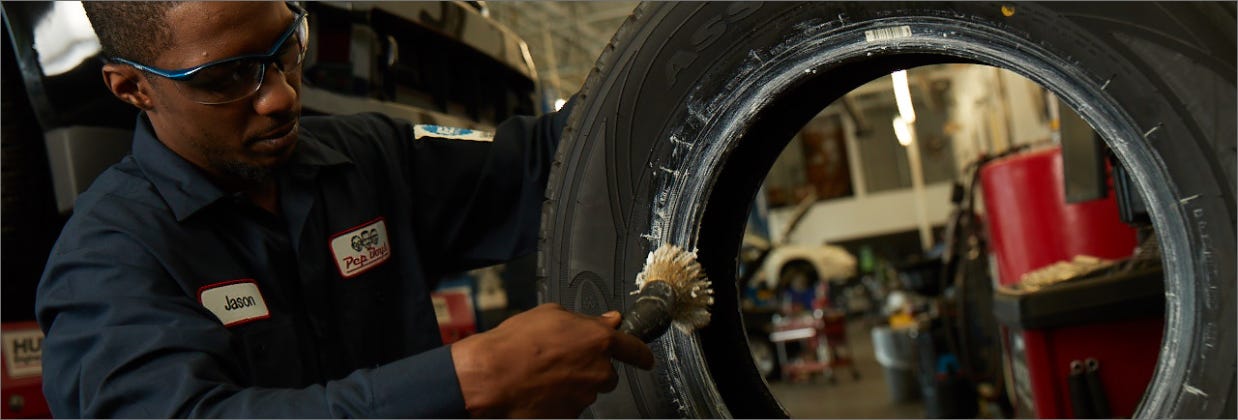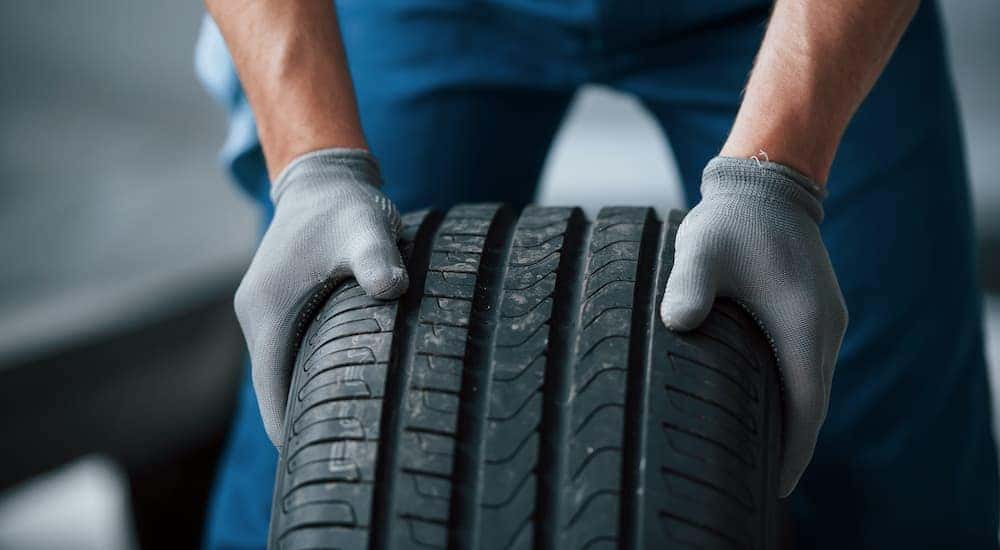Morris Tire: Exceptional Tire Solutions for All Cars
Morris Tire: Exceptional Tire Solutions for All Cars
Blog Article
The Link Between Tire Service and Fuel Efficiency
Effectiveness in gas intake is a critical worry for lorry proprietors looking for to maximize their driving experience. Amongst the different aspects that affect fuel performance, tire solution stands out as a vital component that often goes ignored. The complex partnership in between tire maintenance and gas economy is a testament to the intricate workings of a vehicle. By recognizing exactly how tire care directly impacts the efficiency of your vehicle, you can unlock a realm of opportunities that not just improve performance however likewise add to cost savings in the future.
Value of Proper Tire Rising Cost Of Living
Appropriate tire rising cost of living is an essential element in making the most of gas efficiency and making certain optimum vehicle performance. On the other hand, overinflated tires can lead to a harsher experience, unequal tire wear, and minimized grip - tire shop near me.
Maintaining the correct tire pressure not only improves fuel effectiveness yet likewise boosts driving safety. Effectively filled with air tires provide better handling, braking, and general efficiency when driving. Furthermore, they contribute to extending the life expectancy of the tires, saving you money over time by decreasing the frequency of replacements. Frequently examining and readjusting tire pressure, especially eventually journeys, is a basic yet effective way to maximize your lorry's gas economic climate and guarantee a smooth driving experience.
Influence of Tire Footstep Depth
Keeping the suggested tire pressure is essential for optimum lorry performance and fuel performance; likewise, the tread depth of your tires plays an important role in making certain security and traction when traveling. Tire walk depth directly impacts the capability of your tires to grip the roadway surface, especially in damp or slippery conditions. As tires put on down, their tread deepness decreases, impacting their capacity to channel water away and preserve correct call with the road. The suggested minimum step depth is normally 2/32 of an inch, but also for enhanced security and efficiency, several experts suggest altering tires prior to they reach this factor. Proper step deepness not only guarantees much better handling and stopping yet also adds to fuel effectiveness by decreasing rolling resistance. Regularly examining your tire walk deepness and changing tires when essential is a simple yet effective method to advertise both safety and security and gas efficiency when driving.
Role of Wheel Placement in Performance
Making certain precise wheel placement is crucial for optimizing vehicle performance and optimizing fuel economic climate. Appropriate wheel alignment includes adjusting the angles of the wheels to maker specifications, making sure that they are parallel to each various other and perpendicular to the ground. When wheels are misaligned, it can cause uneven tire wear, raised rolling resistance, and lowered gas effectiveness.

Additionally, precise wheel placement can additionally boost managing and stability, decreasing the amount of power required to steer the lorry (tire tracks morris il). By minimizing unneeded rubbing and drag, correct wheel positioning plays a critical duty in enhancing general vehicle efficiency and fuel economic climate. Routine wheel alignment checks and adjustments are necessary for preserving ideal performance and taking full advantage of gas cost savings
Link In Between Tire Upkeep and MPG
An essential element of enhancing gas performance in automobiles is the maintenance of tires and their straight effect on miles per gallon (MPG) Appropriate tire maintenance plays a critical function in optimizing fuel economic situation. One crucial element influencing MPG is tire pressure. Underinflated tires increase rolling resistance, creating the engine to work more difficult and shed even more gas. On the other hand, overinflated tires reduce the contact spot with the road, leading to unequal wear and reduced fuel efficiency. On a regular basis examining and preserving the appropriate tire stress can substantially improve MPG.
Additionally, tire walk depth additionally influences gas efficiency. Damaged footsteps decrease grip, especially in wet problems, check my source requiring the engine to exert even more power to keep speed. This raised resistance lead to greater gas usage. By ensuring tires have adequate tread depth, motorists can improve both safety and security and gas economic situation.
Essentially, appropriate tire maintenance, including monitoring tire pressure and walk deepness, is directly connected to attaining optimum MPG. By including normal tire assessments and maintenance into a vehicle treatment regimen, drivers can not only extend tire life however likewise improve gas performance, eventually saving money and minimizing environmental impact.

Tips for Fuel-Efficient Tire Treatment
Given the critical relationship in between tire maintenance and fuel performance, executing reliable techniques for maximizing tire care is crucial to enhancing general vehicle efficiency. To ensure fuel-efficient tire care, routine tire stress checks are vital. Effectively inflated tires lower rolling resistance, improving gas efficiency and expanding tire life expectancy. In addition, keeping appropriate wheel placement and harmonizing assists disperse weight evenly, stopping page irregular tire wear and optimizing gas intake. Rotating tires at suggested periods promotes even step wear, improving gas efficiency by making sure all tires add just as to lorry performance. It is also vital to inspect tires for signs of damages, such as cuts, slits, or bulges, as these issues can impact fuel efficiency and overall safety and security. Lastly, selecting tires with reduced moving resistance can considerably improve gas economic situation. By including these fuel-efficient tire treatment pointers into a routine maintenance schedule, chauffeurs can make the most of gas effectiveness, minimize operating costs, and prolong the life of their tires.
Conclusion
By on a regular webpage basis maintaining tires and following fuel-efficient tire care pointers, drivers can enhance their automobile's performance and decrease gas intake. It is essential to prioritize tire maintenance to not only conserve cash on gas costs but additionally to promote general automobile performance.
Report this page